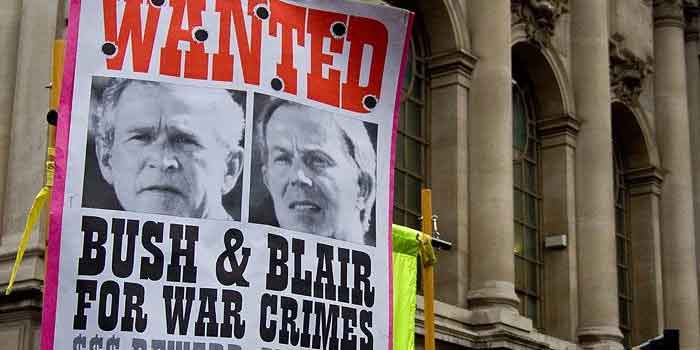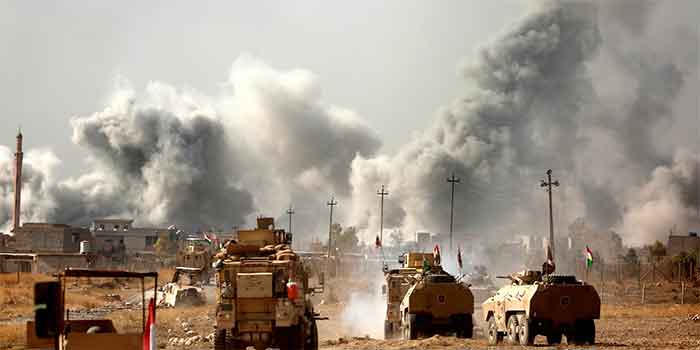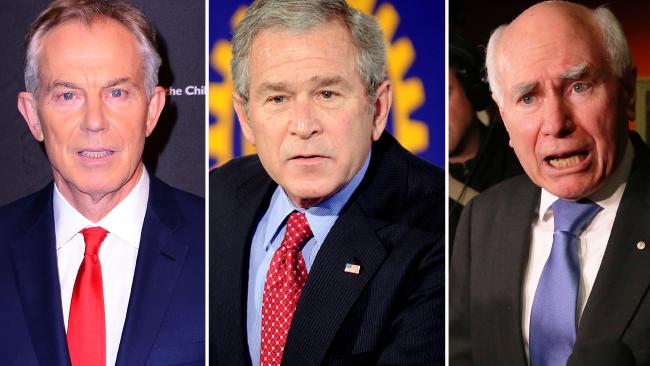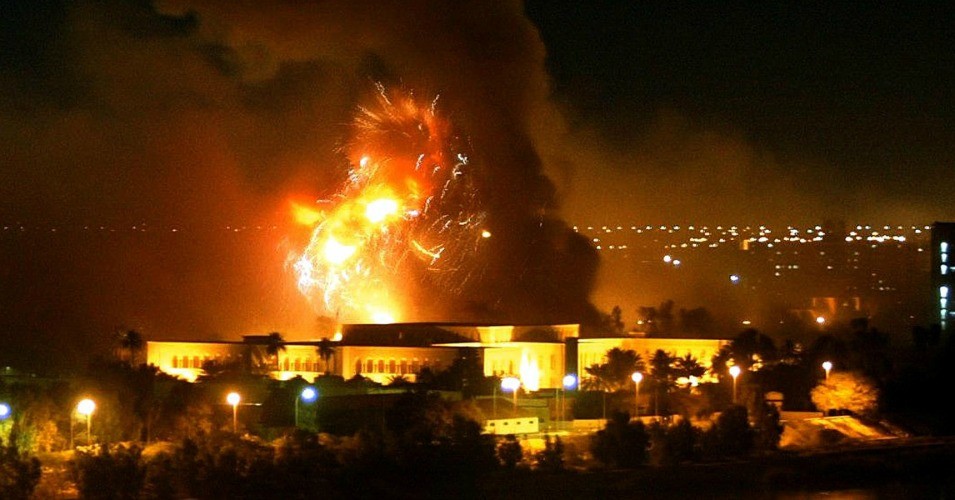
The arrest warrant from the International Criminal Court for Russian President Vladimir Putin came at an opportune moment. It was, if nothing else, a feeble distraction over the misdeeds and crimes of other leaders current and former. Russia, not being an ICC member country, does not acknowledge that court’s jurisdiction. Nor, for that matter, does the United States, despite the evident chortling from US President Joe Biden.
Twenty years on, former US President George W. Bush, former UK Prime Minister Tony Blair, and Australia’s own John Howard, the troika most to blame for not just the criminal invasion of a foreign country but the regional and global cataclysm consequential to it, remain at large. Since then, Bush has taken to painting; Blair and Howard have preferred to sell gobbets of alleged wisdom on the lecture circuit.
The 2003 invasion of Iraq by the US-led Coalition of the Willing was a model exercise of maligning the very international system of rules Washington, London and Canberra speak of when condemning their latest assortment of international villains. It recalled those sombre words of the International Military Tribunal, delivered at the Nuremberg war crimes trials in 1946: “War is essentially an evil thing. Its consequences are not confined to the belligerent states alone but affect the whole world. To initiate a war of aggression, therefore, is not only an international crime; it is the supreme international crime differing from other war crimes in that it contains within itself the accumulated evil of the whole.”
The invasion of Iraq defied the UN Security Council as the sole arbiter on whether the use of force would be necessary to combat a genuine threat to international peace and security. It breached the UN Charter. It encouraged instances of horrendous mendacity (those stubbornly spectral weapons of mass destruction) and the inflation of threats supposedly posed by the regime of Saddam Hussein.
This included the unforgettable British contribution about Saddam’s alleged ability to launch chemical and biological weapons in 45 minutes. As Blair declared to MPs in September 2002: “It [the intelligence service] concludes that Iraq has chemical and biological weapons, that Saddam has continued to produce them, that he has existing and active military plans for the use of chemical and biological weapons, which could be activated within 45 minutes.”
Putin, not one to suffer amnesia on this point, also noted this fact in his speech made announcing Russia’s attack on Ukraine. Iraq, he noted, had been invaded “without any legal grounds.” Lies, he said, were witnessed “at the highest state level and voiced from the high UN rostrum. As a result, we see a tremendous loss of human life, damage, destruction, and a colossal upsurge of terrorism.”
In the immediate aftermath of the invasion, the infrastructure of the country was ruined, its army and public service disbanded, leaving rich pools of disaffected recruits for the insurgency that followed. The country, torn between Shia, Sunni and Kurd and governed by an occupation force of colossal ineptitude, suffered an effective collapse, leaving a vacuum exploited by jihadis and, in time, Islamic State.
Since the invasion, a number of civil society efforts have been undertaken against the dubious triumvirate of evangelist warmongers. The Kuala Lumpur War Crimes Tribunal, convened over four days in November 2011, invoked universal jurisdiction in finding Bush, Blair and their accomplices guilty of the act of aggression.
Despite its unmistakable political flavour – the original body had been unilaterally established by former Malaysian Prime Minister Mahathir Mohamad – its reasoning was sound enough. The invasion of Iraq could not “be justified under any reasonable interpretation of international law” and threatened “to return us to a world in which the law of the jungle prevails over the rule of law, with potentially disastrous consequences for the human rights not only of the Iraqis but of the people throughout the region and the world”.
The Sydney-based SEARCH Foundation also resolved to submit a complaint to the ICC in 2012, hoping that the body would conduct an investigation and issue a warrant for Howard’s arrest. In September 2013, a complaint was filed by Peter Murphy, Secretary of the Foundation, alleging, among a range of offences, the commission of acts of aggression, breaches of international humanitarian law and human rights, and crimes against peace. The effort failed, leaving Howard irritatingly free.
In two decades, the United States still finds itself embroiled in Iraq, with 2,500 troops stationed in a capacity that is unlikely to stop anytime too soon. That said, the parallels with Afghanistan are already being drawn. In 2022, the outgoing head of US Central Command, Marine Gen. Frank McKenzie, trotted out his dream about what would happen. “You want to get to the state where nations, and security elements in those nations, can deal with a violent extremist threat without direct support from us.”
Ironically enough, such violent extremist threats had more than a little help in their creation from Washington’s own disastrous intervention. Eventually, the Iraqis would simply have to accept “to take a larger share of all the enabling that we’re doing now.”
The calamity of Iraq is also a salutary warning to countries willing to join any US-led effort, or rely on the good grace of Washington’s power. To be an enemy of the United States might be dangerous, but as Henry Kissinger reminds us, to be a friend might prove fatal.
Dr. Binoy Kampmark was a Commonwealth Scholar at Selwyn College, Cambridge. He currently lectures at RMIT University. Email: [email protected]













































